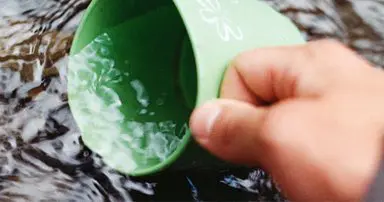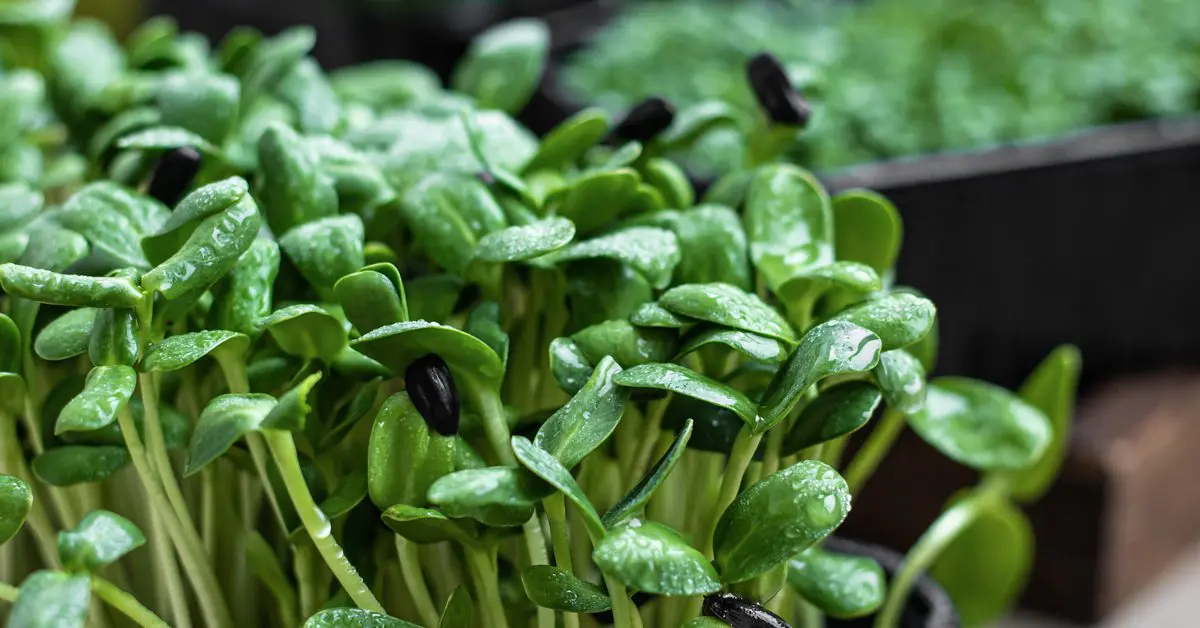So you’ve prudently stocked some nonperishable food supplies for an emergency (such as canned goods, rice and grains). That’s good. Maybe you’ve tried your hand at gardening some of your favorite vegetables, or taken the time to learn something about foraging wild edibles. Even better. Whatever prudent steps you’ve taken to hedge against food scarcity, you know that having a supply of nutritious and healthy food is an essential aspect of survival. But what are your options when your food cache runs low and or expires? Or what if you don’t have the the right conditions, resources, and/or know-how to grow vegetables out of season?
The good news is that there’s one seed variety with a relatively quick growing cycle that will provide you with fresh vegetables year-round, and it’s easier and cheaper than any other options.
Sprouts
The process of sprouting involves germinating seeds and legumes, and then eating them raw. Sprouts and microgreens can come from a variety of seeds such as radish, green pea, mung bean, red clover, wheat, garbanzo bean, lentil, yellow soybean, and many more. Not only are they great on their own, you can add them to almost any recipe –– and they’re loaded with nutrients!
Benefits
- Extremely healthy. Sprouts are high in nutritional value and loaded with vitamins and minerals. They contain proteins that are both high-quality and high-quantity in the form of amino acids and enzymes, which aid in healthy digestion and are known to work as cancer-fighting agents.
- Easy to grow. Sprouts will grow at all times of the year indoors and you won’t need much space to make it happen. They also don’t need soil; just the basics of water, air, and a bit of sunshine on the last day or two of the short growing cycle. In as little as three days, sprouts can be consumed raw without the need for cooking them.
- Inexpensive. What could be more cost effective than some seeds and simple sprouting trays? Certainly not an outdoor garden which can require a good plot of land, gardening tools, watering system, etc.
Growing sprouts
- Measure out your seeds according to the guidance on the seed package.
- Soak your seeds for 6-12 hours in a seed sprouter tray or simple jar (the warmer the temperature, the less soaking time is needed).
- Drain the water and spread seeds evenly.
- Cover your seeds in the container with a towel.
- Place them away from direct sunlight.
- Rinse and drain the seeds 2-4 times a day, depending on the seed. Refer to the seed package for guidance.
- On about the 3rd or 4th day put your sprouts in sunlight on the windowsill or near a window so they can develop chlorophyll.
- Continue to rinse and drain twice a day until the sprouts have grown up to 1-3 inches (depending on the sprout).
For the best results, be sure to check the specific growing instructions of each sprout type.
Other tips
To help you get the best yield and keep your sprouts fresher for longer, here are some added tips for your sprouting effort:
- Seeds. Make sure to purchase seeds specifically packaged for sprouting. Seeds from the bulk bin at your local grocery store are mostly intended to produce vegetables for cooking and aren’t designed for sprouting.
- Care requirements. Different sprout seeds can have some unique requirements for attention and care. For example, chickpeas and soybeans require some extra cleaning time and attention since they are poor germinators, so you may want to start with green peas, hard wheat, lentils and kamut. The latter are much easier by comparison.
- Consumption. Fresh sprouts can be eaten immediately. Proper storage can extend their life, but don’t expect them to last in the refrigerator for weeks on end. Plan your time, supplies and needs accordingly to optimize your sprouting effort. Typically there’s no need to sprout more than your family can consume in a 5-7 day window.
- Storage. Fresh sprouts are best stored in a sprout bag, glass container or plastic container, and placed in a refrigerator or cooler location.
Some seed sources
MORE IN THE SERIES
SPROUTING 102 – Detailed Methods
SPROUTING 103 – Seed Recommendations



























0 Comments